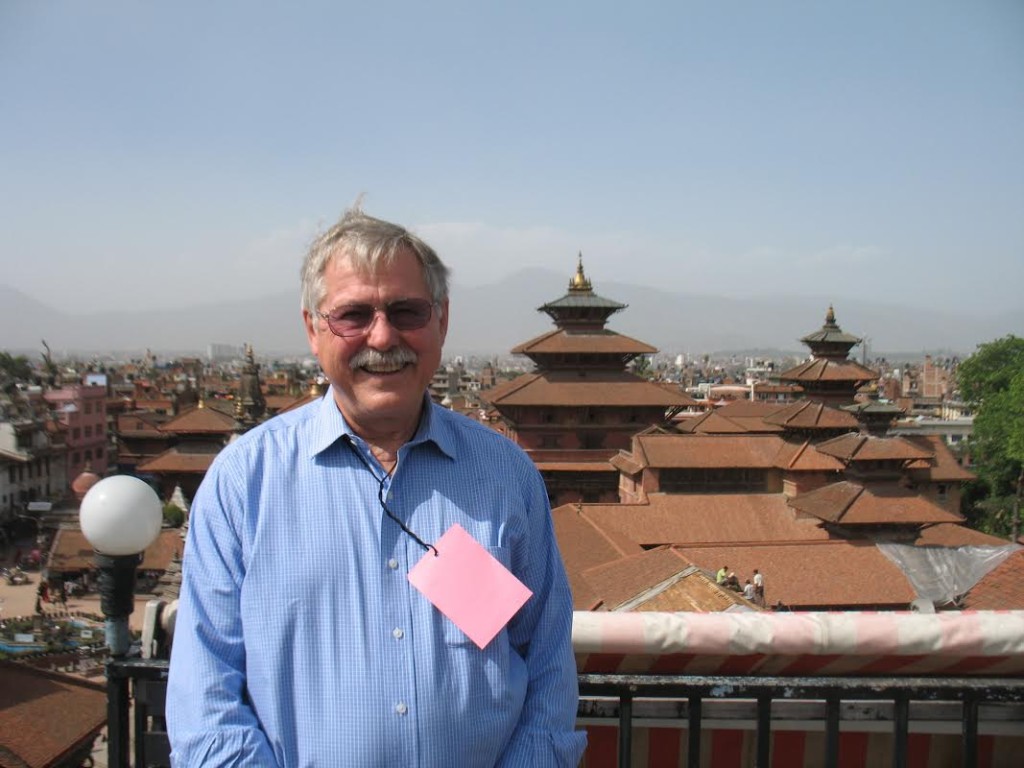Podcast: Play in new window | Download
Subscribe: Apple Podcasts | RSS
Dr. Michael Clegg is a Professor Emeritus of Biological Sciences, Ecology, and Evolutionary Biology at the University of California, Irvine. He is also the past Foreign Secretary of the US National Academy of Sciences, and just recently finished serving in his third consecutive term. Mike received his PhD in Genetics from the University of California, Davis. He served on the faculty at Brown University, the University of Georgia, and the University of California, Riverside before accepting a position at UC, Irvine. Mike has a long list of career and research accolades. He was elected as a Member of the US National Academy of Sciences, a Fellow of the American Academy of Arts and Sciences, a Member of the American Philosophical Society, a Fellow of the Global Academy of Sciences, an Honorary Member of the Palestinian Academy of Sciences, a Foreign Fellow of the Nigerian Academy of Science, and a Corresponding Member of multiple other international Academies. He is also a Senior Fellow of the California Council on Science and Technology and has been awarded the Darwin Prize from Edinburgh University. Mike is here with us today to tell us all about his journey through life and science.
People Behind the Science Podcast Show Notes
Life Outside of Science
When not engrossed in science, Mike likes to likes to read history books. He also has a fascination with airplanes that goes all the way back to his youth. Currently, he owns and flies two different airplanes. Some of Mike’s other favorite activities are traveling and spending time with his family.
The Scientific Side
Mike studies how genes change through time and uses that information to understand the historical relationships between organisms.
A Dose of Motivation
This is the life.
What Got You Hooked on Science?
Though his father was a scientist and Professor at the University of California, Davis, Mike was not a particularly good student. He joined the army as a paratrooper for a few years, spent some time in junior college, started his family, and settled into a position in the sugar industry in California. Unbeknownst to Mike at the time, this technician position was the start of his illustrious science career. He was able to go back to school on the G.I. Bill and was captivated by one of his genetics classes.
The Low Points: Failures and Challenges
One of the frustrations that Mike faced relatively early on occurred when he and a colleague were trying to apply molecular biology tools to understand gene evolution. In the late 1970s and early 1980s, the technology was very crude, and they were not successful in their goal of trying to clone a plant nuclear gene. It also took approximately six months to sequence a gene – a task that can be completed today in a week or less!
A Shining Success!
Some of Mike’s prior work has investigated the process of randomization of genes over time due to genetic recombination. One of his early questions was related to whether certain gene interactions slowed down the process of randomization. He was able to show that self-fertilizing plants demonstrated his hypothesized slowing of the effects of recombination over time. This discovery really helped to launch his research career.
Book Recommendations
Year of Meteors: Stephen Douglas, Abraham Lincoln, and the Election that Brought on the Civil War by Douglas R. Egerton
Most Treasured Travel
In 2007, Mike visited Iran to work with fellow Members of the U.S. National Academy of Sciences and and scientists from the Iranian Academy of Sciences. It was fascinating to experience the differences in culture and to build great relationships with scientists despite the political tensions between our two countries. While there, Mike also visited the ancient city of Persepolis, and had a wonderful time exploring 2,500 years of history!
Quirky Traditions and Funny Memories
Camaraderie and community spirit have always characterized the scientific environments he has worked in. Mike shares the fantastic traditions that took shape at some of the different institutions where he worked, including morning coffee meetings at Brown University, pub hang outs at UC Riverside, and bonding with colleagues over lunch at UC Irvine. All of these traditions brought great people together to talk about life and science in a relaxed and stimulating environment.
Advice For Us All
It’s wonderfully enriching to know more about the world that we live in. Science gives you a great opportunity to experience life not only in the present, but also in the past and across great spans of space.
Guest Bio
Michael was born into a scientific family: both his father and grandfather were biological researchers, and his great-grandfather was a physician. So Mike did what came naturally—he rebelled. He worked as a crop duster’s assistant and served as a military paratrooper before settling down to married life and a job in the sugar industry. When he returned to college, he planned to pursue a degree in international agriculture. However, a required course in genetics brought him back to science, and Mike has become one of the world’s foremost plant evolutionists. Using DNA sequencing technology and sophisticated statistical methods, he has explored the evolutionary history of plants, from the origins of flower colors to how humans first domesticated barley and came to practice agriculture.

Leave a Reply